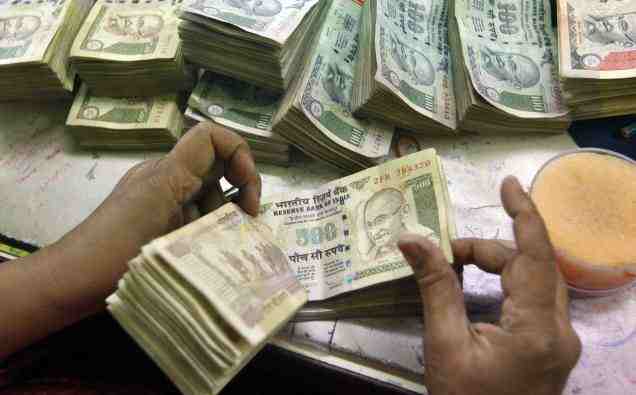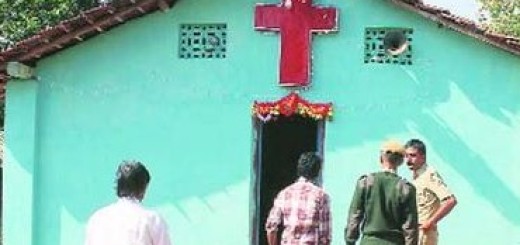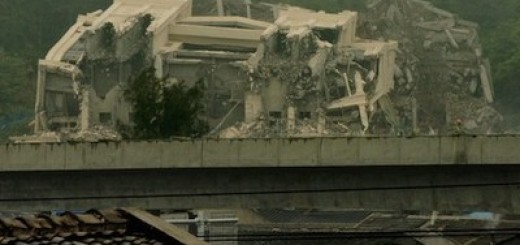Call for Caesar role in Church – Debate on who should administer assets in India worth crores

The Telegraph – Wednesday , August 26 , 2009 – CITHARA PAUL
|
New Delhi, Aug. 25: A debate has begun among India’s Catholics on who should have final say on the Church’s billions of rupees worth of assets in the country, the bishops or the government. A lobby within the community, especially organisations of the laity, has demanded a law allowing the government to administer Church properties. India’s 500-year-old Catholic Church, which has five times the number of priests compared with any other country, is the nation’s second-largest employer after the Government of India. It is said to own one of the largest chunks of non-agricultural land and has a budget equal to the Indian Navy’s. It now has complete control over its assets. Many Catholics, including several scholars, however, have questioned whether the bishops should have the responsibility to administer these properties, worth several lakh crores. “We all revere the bishop as our guide on matters of faith and morals, but not in matters of property,’’ said Remy Denis, president of the All India Catholic Union, a forum that represents the country’s Catholic laity through 120 diocesan units. This view has gained momentum following recent public criticism by the Catholic laity of the Goa Church’s alleged attempts to sell off high-value coastal properties to real estate developers. Recently, the demand for a law to govern Church properties was raised at a public forum in Goa. However, the Catholic Bishops Conference of India spokesperson, Fr Babu Joseph, said: “Government interference is not warranted in the existing practices of management of Church property.” Joseph Pulikunnel, who directs the Indian Institute of Christian Studies, said that although Church properties are acquired through contributions from the laity, the laity has no say in their administration. He said canon law allows the bishops, as the Pope’s representatives, to administer Church property using legislative, executive and judicial powers. “It is legally not viable to say that the head of the Vatican, a sovereign state, has the administration power over Church property in India, another sovereign state,” Pulikunnel argued. He cited how religious properties of other faiths in India are managed by government-appointed committees. The exemption to the Church is discrimination, he said. Fr Joseph, however, asserted that Church properties in India are owned by the country’s Catholic community and not Rome. “All the properties belonging to the Catholic Church are administered by registered societies and not by any individual bishop or priest,’’ he said. Besides, he said, Church property is already governed by the law of the land. Church groups get their accounts audited and submit reports to the government, which can probe irregularities and take corrective action under the current laws. But former Supreme Court judge K.T. Thomas said that a law for the governance of Church properties would ensure accountability and transparency, and that every religious leader should welcome it. Eduardo Falerio, a Catholic politician and former minister, too questioned the clergy’s arguments. He said that in other parts of the world, government laws control Churches but India allows for canon law. “Religious organisations cannot form a state within a state,’’ he said. Those who want a government role suggest two options: one, direct management of the Church’s assets by the government and two, a law that allows elected representatives to form trusts and societies for the administration of parish and diocesan properties. Proponents of the second option want the government to set up a board to manage Church properties, similar to the wakf boards for Muslims. But the clergy are in no mood for such change. “Unlike the assets the wakf board oversees, Church properties were purchased, not received from the government as charity,’’ Fr Joseph said. He said the Church uses its property to serve India’s poor. “Most of its beneficiaries are the Dalit and tribal people. Any kind of external interference and subsequent political and administrative intervention will affect its functioning.” |
|
|

















Varghese Pamplanil: The administration of assets of the Catholic Church in India.
(Reference: article “ Call for Caesar Role in Church)
My experience as a trustee of a parish and member of the five member financial council of a diocese and above all my long experience as an examiner of the quality of financial, managerial and other aspects of banks ( I was a member of the last inspection of the now defunct Bank of Cochin and examined its liabilities and assets). may entitle me to make the following suggestions:
The non-spiritual matters of the Church should be managed by a Board of Management with the following members:
At the apex ( POC) level the Board should comprise of three bishops,
two retired judges of the Supreme Court of which one Catholic/ Christian, and the other non-Christian, two advocates of the Supreme Court – retired or practicing, ( one non-Christian), one management expert with proven credentials and one experienced Certified Chartered Accountant of integrity ( non-Christian) thus in all nine members.
At the diocese level, the nine member Board should consist of the local bishop and his two nominees, two retired judges of the High Court, one of whom to be non-Christian, two advocates of the High Court with proven credentials ( one non-Christian), one management expert with proven ability and one practicing Chartered Accountant, preferably non-Christian
The systems, practices and accounts of the POC, diocese and member parishes should be audited by an independent and outside Certified Chartered Accountant, non-Christian and his team, every year, by and large,focussing on CAMELS:
C : Capital adequacy which examines the financial health of the organisation by evaluating CRAR ( Capital to Risk Assets Ratio) assessed by prudential accounting norms and certified by the Chartered Accountants ante;
A : Assets quality by a proper evaluation of the portfolio;
M : Style of management ( excluding religious/spiritual matters) to ensure that the man-management in the POC, diocese and the parishes converge to the best practices leaving no room for arbitrary and whimsical behaviour and actions and proper records of decisions are maintained;
E : Earnings; the financial management is on prudential lines leaving adequate surpluses;
Liquidity : Liquid funds are available to defray current expenditure to avoid knee jerk steps to collect funds to met the needs;
S : Systems and procedures are in place for functioning of the organisation at the optimum level.
It high time for the bishops and clergy to realise that the Church is not their personal fiefdom and the wealth of the Church is the end product of sacrifices and munificence of its members past and present and the stake holders include the laity. Tragically Christianity has degenerated into “ a creed, a ritual and an eclesiatico-politico-financial organisation” to become a blot on humanity.
Varghese Pamplanil
Mob: 9447152533